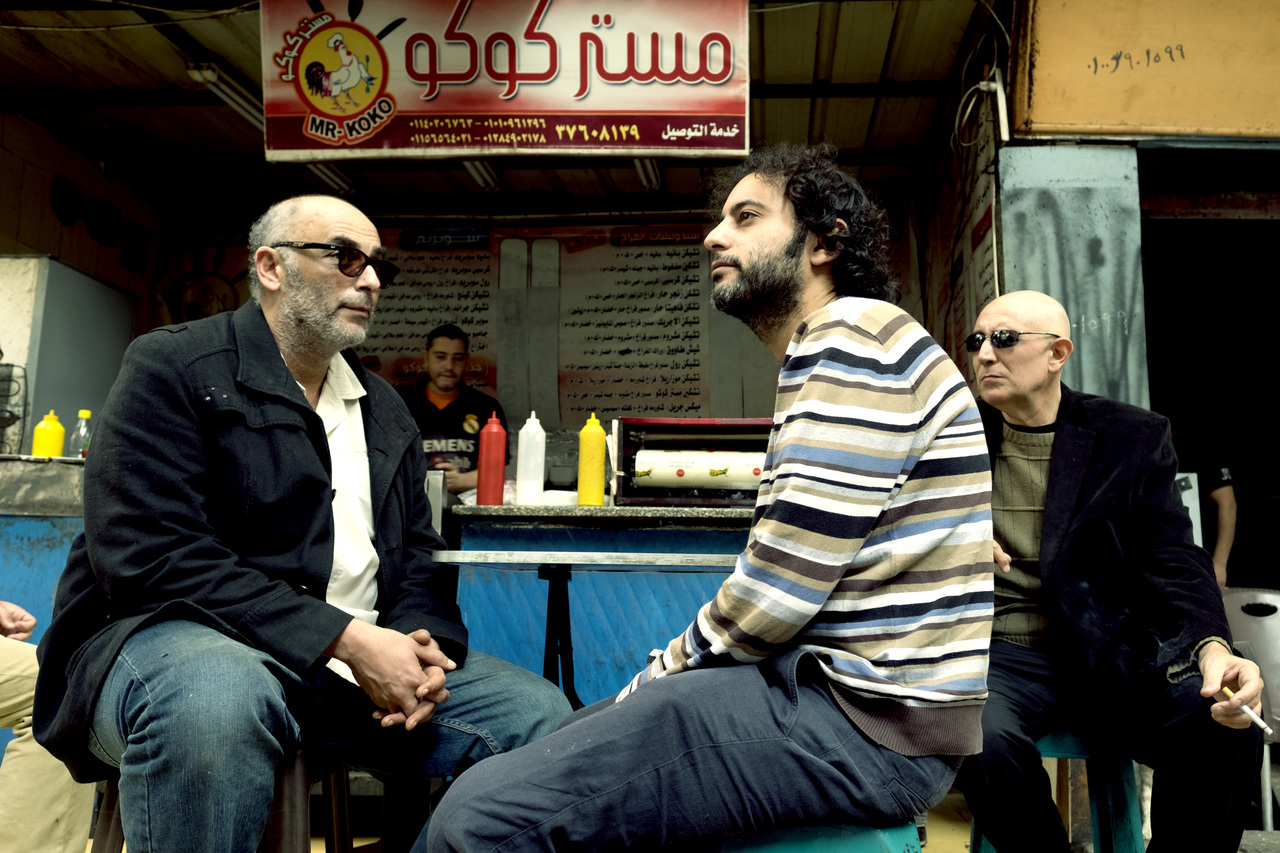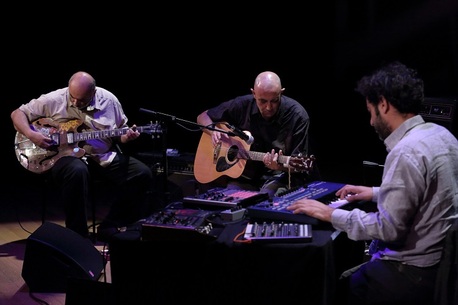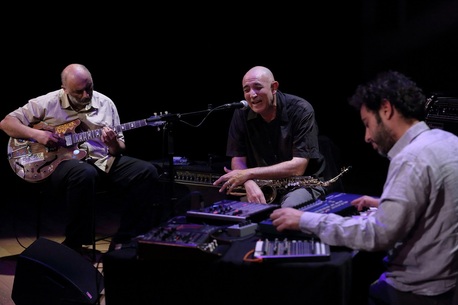Written by:
Share article:
Cities and freedom
Bogdan: I’m constantly looking for places where you can breathe a little. You guys travelled a lot. How do you feel about Bucharest's vibe?
Sam: Every place is fucked. We have travelled quite a bit, and this place, compared to most places, is great actually. In terms of a European city, it’s one of the best I’ve been to. It really is.
Alan: In terms of the amount of excitement and less pretension. There was less of the pretentious “I’ve seen everything”, “I’m too cool for you and I’m not going to react”. People are genuinely interested. It’s similar to when we went to Leipzig earlier in the year. It was a smaller crowd but very attentive, maybe 80 people, but they were really grateful and they were really interested in what we were doing, and they were engaged. And people were engaged last night. I did two shows in Brussels! One with the Dwarfs earlier in the year, it was a very engaging crowd, a very excited crowd. And then one with The Invisible Hands where it was one of those “we’re too cool for school” crowds, you know? They didn’t react. Neil Hagerty opened up and it wasn’t that big of a deal. Everyone was just being hip. So it just depends….
Bogdan: You think it’s because they have too many events?
Alan: Maybe. And because I think that it’s over in a way. Because when you get the other side of it, it becomes routine, the excitement is gone, they have seen it all.
Sam: But it’s also an attitude, though. I think people adopt an attitude because it’s almost like if you go to really big cities that are cultural centers, that’s how people are. If you go to New York, you could stab yourself in the eyeball for half hour and the audience would be “Yeah, whatever”. They don’t really care.
Alan: It’s over in New York too. It’s been over in NY for years.
Maurice: Also, crowds are representative of the cities they’re from. Bucharest, compared to St. Gallen, compared to Zurich. It’s obvious that this place is a lot more alive.
Sam: But I do think there’s a kind of creeping thing going, because you also notice it in Cairo a little bit. There’s a creeping thing where people assume that the right way to act, when you go to a show, is to just kind of have that weird jaded thing, and it seems to be spreading in a weird way.
Alan: This is it, yeah. When the ego takes over in a collective way in a community, then it’s over, everyone becomes competitive…
Sam: It stops being about the music, right? It ends up being more about people that just come because they hear it’s a cool thing to do; the experience of the music becomes secondary. To them, the experience of being in a social context and presenting yourself is more important.
Bogdan: Can you tell us about some cities or regions where you’ve seen people still being able to live a bit more freely, where the psycho businessmen and politicians haven’t completely taken over?
Sam: That’s subjective, though.
Alan: It is. It depends on how you define personal freedom and freedom in general. There are plenty of places where you can go and people leave you alone. And you have more of an expressive personal freedom on the street every day. I mean… Cairo is like that. There are obviously corrupt governments everywhere, but when it comes to a sort of a day to day living on the street, in a lesser amount of obedience to this kind of western obedience that is out there, where people would hesitate to cross the street because they see a traffic light and they are not supposed to, maybe they’ll get a ticket from the police for jaywalking. Well that doesn’t happen in Cairo. They are crossing the street everywhere and people are driving like crazy, zig zagging around... there is that element, you know? But beyond that, to where you can feel that there’s no oppressive regime over you, or that there are consequences to … you know… maybe being a little bit more outspoken. I don’t know if those places really exist, other than for the privileged “elite”. That’s the world where you have the freedom to do whatever you want… as if you’re “elite”. And who wants to be a member of that .001% club of assholes that probably sacrifice children on a daily basis!?
Sam: What you often have in countries where the government is very corrupt and very oppressive (like in Cairo) is a very big distinction among people. And people know that. People know that this thing is corrupt and has been corrupt for a long time. So people are not affected so much by that. It’s more free on a social level. But in a lot of western countries, people mix it up. So they start being their own kind of police, right? They don’t want to say things because they will offend someone. They feel like they can’t do this, they can’t do that, or they can’t smoke in a certain place or whatever. They just start to do that themselves. So in places like Egypt, there is more freedom on a more day-to-day level. Whereas, for example, in Switzerland, that is supposed to be very progressive, there is not. But the people themselves are their own police.



